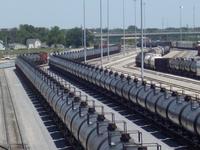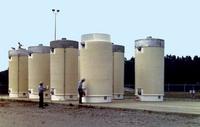-
Skilled immigrants to be granted “express entry” to Canada to meet labor market needs
Canada’s immigration minister Chris Alexander has announced a new immigration system, set to launch in 2015, allowing qualified skilled immigrants to enter the country as permanent residents as a way to fill open jobs where there are no available Canadian workers. The immigration ministry has promised to process applications within six months or less.
-
-
Economic relationships, not terrorism fears, drive visa decisions: study
Despite heightened focus on preventing global terrorism since the 9/11 attacks in 2001, researchers have found that the economic relationship between two countries is the most significant factor in determining the acceptance or rejection rate of visas. “Surprisingly what I find is the global reputation a state garners as a prominent origin of terrorism has a very minute impact when you take into account trade interdependence,” the study’s author says.
-
-
Carbon-cutting regulations may boost prospects of nuclear power plants

In a report issued last Thursday, Standard & Poor’s Ratings Services (S&P) predicted that new nuclear plant construction could benefit from the Environmental Protection Agency’s (EPA) recent carbon-cutting guidelines for current natural gas power plants.
-
-
Debate continues over controversial lawsuit-killing Louisiana oil bill
Governor Bobby Jindal (R-Louisiana) is facing a difficult decision over whether or not to veto a measure which would kill a contentious lawsuit filed by the Southeast Louisiana Flood Protection Authority-East (SLFPA-E) against ninety-seven different oil and gas companies regarding long-term environmental damage claims, including those of the 2010 Deepwater Horizon explosion.
-
-
Reducing use of nitrogen-based fertilizers helps combat climate change

Nitrogen-based fertilizers spur greenhouse gas emissions by stimulating microbes in the soil to produce more nitrous oxide. Nitrous oxide is the third most important greenhouse gas, behind only carbon dioxide and methane, and also destroys stratospheric ozone. Agriculture accounts for around 80 percent of human-caused nitrous oxide emissions worldwide, which have increased substantially in recent years, primarily due to increased nitrogen fertilizer use. Scientists help farmers around the globe apply more-precise amounts of nitrogen-based fertilizer to help combat climate change.
-
-
Recession-related cost measures blamed for U.S. infrastructure lagging development
In an alarming fall, the United States is currently ranked 19th in the quality of its infrastructure, according to the World Economic Forum’s Global Competitiveness Report. Additionally, the American Society for Civil Engineers (ASCE) has given the country a D+ on its annual Infrastructure Report Card, arguing that $3.6 trillion is needed by 2020 for maintenance and upgrades.
-
-
Feds, rail operators, Washington State embroiled in crude oil shipment disclosure dispute

Last month the U.S. Department of Transportation(DOT) ordered rail carriers with trains carrying crude oil to notify state officials in the states through which the trains pass about the volume, schedule, and routes of these trains. The amount of crude oil transported by trains has grown dramatically – from 6,000 carloads in 2005 to more than 400,000 carloads in 2013. The increase in the volume of crude oil shipping has been accompanied by a sharp rise in the number of accidents and derailments. DOT’s order was meant to allow states’ first responders to be prepared, but the railways treat shipping information as “security sensitive” and refuse to share it with states’ officials unless the information is distributed to emergency response groups for planning purposes only. Washington State says that state laws require that such information be made public.
-
-
Security guard industry lacks standards, training

Despite playing a more important role in the wake of 9/11, the security guard industry remains plagued by inadequate training and standards in many states, new study of the $7 billion-a-year industry finds. Formal training of the nation’s one million-plus private security officers is widely neglected, a surprising finding when contrasted with other private occupations such as paramedics, childcare workers, and even cosmetologists.
-
-
Adm. Michael Rogers: Businesses must “own” cybersecurity threats

Cybersecurity threats are a vital issue for the nation, and like the Defense Department, businesses must own the problem to successfully carry out their missions, DOD’s top cybersecurity expert told a forum of businesspeople.
-
-
DHS relaxes employment rules for H-1B visa spouses
Last month DHS proposed two new rule changes which would allow H-4 dependent spouses of highly skilled immigrant workers who hold an H-1B, E, or L visas, to work legally in the United States. Current regulations prohibit work authorization for spouses of said visa holders. Some immigration advocates say the proposal is too narrow since getting employers to sponsor an H-1B visa applicant is already challenging.
-
-
Roots of Trust research focuses on protecting cyber physical systems
“Roots of Trust” refers to a set of security functions in a device or system, which are implicitly trusted by the device’s operating system and applications, and which constitute the foundation for security. The Cyber Security Research Alliance (CSRA) the other day said it will prioritize research in Roots of Trust for cyber physical systems (CPS), to help address growing cyber security threats to public and private critical infrastructure.
-
-
Federal oversight of ammonium nitrate exceedingly weak
A new Government Accountability Office(GAO) report found that the federal government has no way of fully knowing which chemical facilities stockammonium nitrate, a widely used fertilizer which was the cause of the explosion last year at a West, Texas fertilizer plan, which resulted in the death of fourteen people – and which was used by Timothy McVeigh in Oklahoma City twenty years ago. Poor data sharing with states, outdated federal policies, and numerous industry exemptions have contributed to a weak federal oversight. Without improved monitoring, regulators “will not know the extent to which dangerous conditions at some facilities may continue to exist,’’ the GAO report said.
-
-
U.K. forwarders “not surprised” by U.S. climb-down on 100 percent container scanning
One leader of the international freight industry says it was “hardly surprising” to hear the recent news that the United States has delayed new rules requiring all cargo containers entering the United States to be security scanned prior to departure from overseas for two more years, amid questions over whether this is the best way to protect U.S. ports.
-
-
NRC will not require nuclear plants to transfer waste to dry cask storage

Cooling pools on the grounds of U.S. nuclear plants, where toxic nuclear waste is stored, are near capacity, and in 2010 the plug was pulled on the Yucca Mountain centralized national nuclear waste repository, meaning that for the foreseeable future radioactive will continue to accumulate on site at the more than 100 nuclear power plants. Lawmakers called on the U.S. Nuclear Regulatory Commission (NRC) to require nuclear plants to hurry the transfer of spent fuel from the cooling pools to dry cask storage, which scientists consider much safer. The NRC, however, has decided that, at least for now, there is now reason to require nuclear plants to do so.
-
-
Extreme weather exposes the toxic legacy of an industrial past
The increase in the number and intensity of extreme weather events in the United States carries with it yet another, more insidious danger: it forces to the surface toxic lead from long-shuttered smelters. Lead smelters had mostly closed down in the United States by the 1980s, but they left behind millions of tons of toxic waste. One example: In 2011, Joplin, Missouri suffered a devastating tornado which killed 158 people and flattened much of the city. Decades of lead processing in the Joplin area had created about 150 million tons of toxic wastes, with about 9 million tons still remaining after a federal Superfund cleanup. The 2011 tornado forced some of the buried lead to the surface, forcing Joplin to spend $3.5 million so far on lead clean up. The city now requires builders to test for lead, and clean up any traces, before beginning construction.
-
More headlines
The long view
Ransomware Attacks: Death Threats, Endangered Patients and Millions of Dollars in Damages
A ransomware attack on Change Healthcare, a company that processes 15 billion health care transactions annually and deals with 1 in 3 patient records in the United States, is continuing to cause massive disruptions nearly three weeks later. The incident, which started on February 21, has been called the “most significant cyberattack on the U.S. health care system” by the American Hospital Association. It is just the latest example of an increasing trend.
Chinese Government Hackers Targeted Critics of China, U.S. Businesses and Politicians
An indictment was unsealed Monday charging seven nationals of the People’s Republic of China (PRC) with conspiracy to commit computer intrusions and conspiracy to commit wire fraud for their involvement in a PRC-based hacking group that spent approximately 14 years targeting U.S. and foreign critics, businesses, and political officials in furtherance of the PRC’s economic espionage and foreign intelligence objectives.
European Arms Imports Nearly Double, U.S. and French Exports Rise, and Russian Exports Fall Sharply
States in Europe almost doubled their imports of major arms (+94 per cent) between 2014–18 and 2019–23. The United States increased its arms exports by 17 per cent between 2014–18 and 2019–23, while Russia’s arms exports halved. Russia was for the first time the third largest arms exporter, falling just behind France.
LNG Exports Have Had No Impact on Domestic Energy Costs: Analysis
U.S. liquified natural gas (LNG) exports have not had any sustained and significant direct impact on U.S. natural gas prices and have, in fact, spurred production and productivity gains, which contribute to downward pressure on domestic prices.
